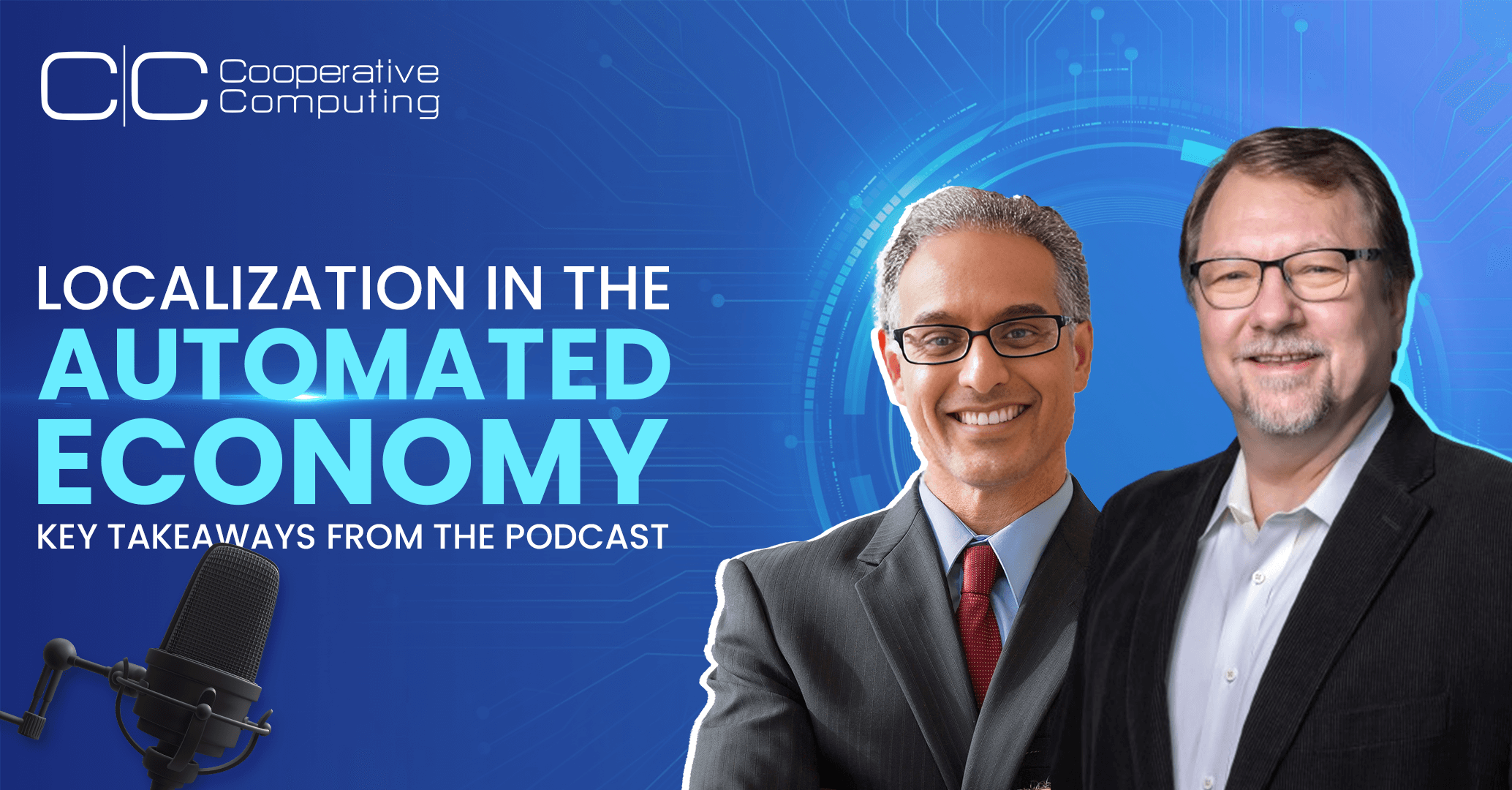In this captivating episode of “Localization in the Automated Economy”, Krish and David Kramer’s discussion takes us on a thought-provoking exploration of the revolution digital enablement brings to localization within the automated economy. The podcast presents a powerful argument about how digital enablement is bridging globalization and localization, empowering local economies, and adapting to meet the shifting demands of the global markets.
As the discussion develops, we understand how and why countries are aggressively integrating technology into their economic frameworks. The conversation then shifts to the broader implications of these changes, emphasizing the need for adaptability and innovative thinking in leveraging automation for local benefits. Kramer’s experiences highlight the importance of understanding cultural nuances to successfully implement technology-driven solutions across different global markets.
The episode explores the dynamic intersection of digital innovation and cultural identity, contemplating how the automated economy reshapes our engagement with technology on a local scale and its impact on local markets within the global economy. The discussion further digs into the evolution of automated economies, highlighting the shift towards hyper-automation in services, particularly in government sectors across countries like New Zealand, Dubai, and Chile, and its impact on efficiency and service delivery.
This journey into the automated economy challenges us to forge a path that harmonizes technological advancement with the preservation of local identity and values, ensuring that automation enhances rather than erases the rich tapestry of global diversity. As automation reshapes industries and economies, it beckons us to consider not only the technological imperatives but also the cultural sensitivities and regional specificities that define the essence of localization. Are we prepared to navigate the balance between global technology trends and local cultural nuances, in the time of rapid digitalization?
Dive into the nuanced world of localization in the automated economy with Krish and Kramer. Together, they unravel the complexities of adapting global technologies to local contexts, offering thought-provoking insights. This dialogue transcends the ordinary, urging listeners to confront the future with an inquisitive mind, bravery, and an open heart, igniting a movement to thoughtfully navigate the evolving landscape of technology and culture.
Key takeaways from the podcast are as follows:
1. Global Automation Trends: The podcast highlights the international impact of automation, exemplified by New Zealand’s efficient airport processes and Dubai’s advanced service acceleration, illustrating the global shift towards an automated economy.
2. Economic Impact and Growth: Kramer observes economic transformations due to automation, noting significant investments and growth in countries like India, driven by technological advancements and policy changes.
3. Innovation in Automation: The need for continuous technology innovation is emphasized, showing how advancements drive economic growth and efficiency in various sectors.
4. Cultural and Economic Adaptation: The importance of tailoring automated solutions to specific cultural and economic contexts is discussed, underscoring the need for localized approaches to maximize the benefits of automation.
5. Ethical Considerations in Automation: Ethical challenges, such as job displacement and AI biases, are considered, highlighting the necessity of ethical frameworks in the integration of automation.
6. Entrepreneurship in the Automated Economy: The discussion underscores the significance of entrepreneurial thinking in exploiting automation opportunities, stressing the importance of adaptability and innovation in entrepreneurial ventures.
7. Digital Transformation and Enablement: The role of digital tools in transforming business processes and enhancing client experiences is examined, illustrating the shift towards digital-centric business models.
8.Personalization in Automation: The focus on customizing automated solutions to meet individual consumer needs is highlighted, stressing the importance of personalization in enhancing user experiences.
9. Future Workforce and Skills: The evolving nature of job roles and required skills in an automated world is discussed, emphasizing the need for continuous learning and adaptability in the workforce.
Wrapping It Up
In wrapping up our journey through the intricate landscape of localization in the automated economy, we grasp a vital insight: automation’s essence lies not in supplanting human endeavor but in enhancing it, making our interactions richer and more efficient.
This journey isn’t just about technological integration but enhancing our human experiences through the lens of local culture and needs. The dialogue illuminates the potential of AI and automation to revolutionize local economies, urging a blend of innovation and tradition. It’s a call to integrate these advancements while preserving local identity, fostering growth, and enhancing community resilience in the face of global digital trends.
As we progress, let’s view this dialogue as a catalyst for action, urging us to actively engage in the evolving automated economy. With Cooperative Computing leading the way, let’s face these shifts with openness and intelligence, ready to craft the future with imaginative thinking, sharp insights, and our undiminished localized touch.

